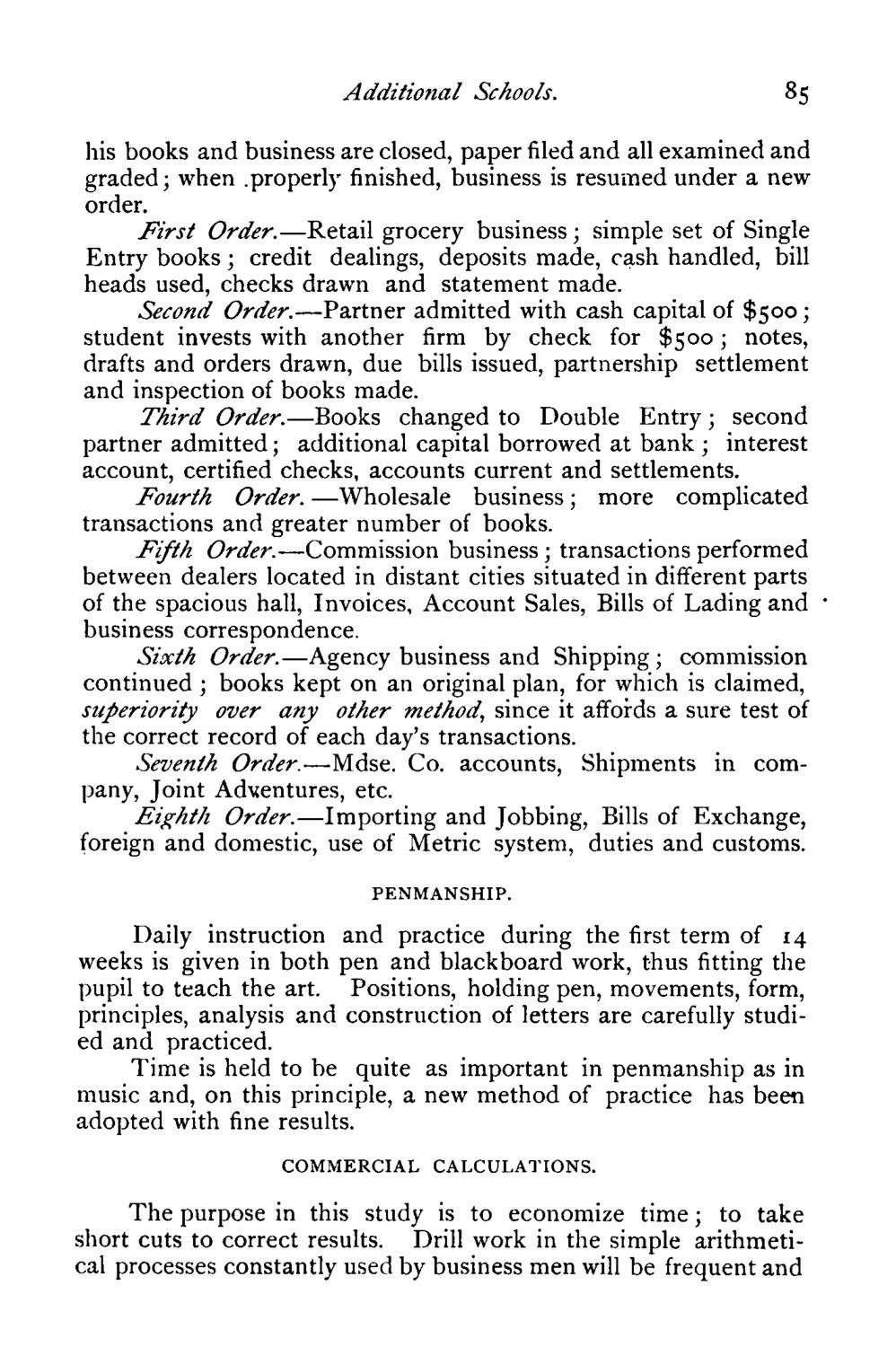| |
| |
Caption: Course Catalog - 1878-1879
This is a reduced-resolution page image for fast online browsing.

EXTRACTED TEXT FROM PAGE:
Additional Schools. 85 his books and business are closed, paper filed and all examined and graded; when .properly finished, business is resumed under a new order. First Order.—Retail grocery business; simple set of Single Entry books; credit dealings, deposits made, cash handled, bill heads used, checks drawn and statement made. Second Order.—Partner admitted with cash capital of $500; student invests with another firm by check for $500; notes, drafts and orders drawn, due bills issued, partnership settlement and inspection of books made. Third Order.—Books changed to Double Entry; second partner admitted; additional capital borrowed at bank ; interest account, certified checks, accounts current and settlements. Fourth Order. —Wholesale business; more complicated transactions and greater number of books. Fifth Order.—Commission business ; transactions performed between dealers located in distant cities situated in different parts of the spacious hall, Invoices, Account Sales, Bills of Lading and business correspondence. Sixth Order.—Agency business and Shipping ; commission continued ; books kept on an original plan, for which is claimed, superiority over any other method, since it affords a sure test of the correct record of each day's transactions. Seventh Order.—Mdse. Co. accounts, Shipments in company, Joint Adventures, etc. Eighth Order.—Importing and Jobbing, Bills of Exchange, foreign and domestic, use of Metric system, duties and customs. PENMANSHIP. Daily instruction and practice during the first term of 14 weeks is given in both pen and blackboard work, thus fitting the pupil to teach the art. Positions, holding pen, movements, form, principles, analysis and construction of letters are carefully studied and practiced. Time is held to be quite as important in penmanship as in music and, on this principle, a new method of practice has been adopted with fine results. COMMERCIAL CALCULATIONS. The purpose in this study is to economize time; to take short cuts to correct results. Drill work in the simple arithmetical processes constantly used by business men will be frequent and
| |